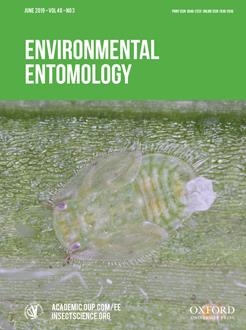Pollination services provided by the honey bee, Apis mellifera (Hymenoptera: Apidae, Linnaeus, 1758) have broad economic impacts and are necessary for production of a diversity of important crops. Hives may be transported multiple times per year to provide pollination. To test how temperature may contribute to transportation stress, temperature sensors were placed in hives in different locations and orientations on the trailer during shipping. Colony size prior to shipping significantly contributed to loss of population immediately after shipping which contributed to colony failure with smaller colonies more likely to fail and fail faster. Colony size also affects thermoregulation and temperature stress. Internal hive temperature varies significantly based on location and orientation. While colonies near the front and rear of the trailer and those oriented toward the center aisle had significantly different average internal temperatures, colony size best predicts loss of thermoregulation. Additionally, we profiled gene expression at departure, on arrival, and after a recovery period to identify transcriptional responses to transportation. Functional and enrichment analysis identified increased methylation and decreased ribosomal and protein-folding activity. Pheromone and odorant-binding transcripts were up-regulated after transportation. After recovery, transcripts associated with defense response, immune activity, and heat shock decreased, while production of antibiotic peptides increased. We conclude that hives experience considerable temperature stress possibly caused by turbulent airflow in exposed locations. Transportation stress should be considered an important component of annual colony losses which can be mitigated with improved management strategies.
How to translate text using browser tools
30 March 2019
Long-Distance Transportation Causes Temperature Stress in the Honey Bee, Apis mellifera (Hymenoptera: Apidae)
Dacotah Melicher,
Elisabeth S. Wilson,
Julia H. Bowsher,
Steve S. Peterson,
George D. Yocum,
Joseph P. Rinehart

Environmental Entomology
Vol. 48 • No. 3
June 2019
Vol. 48 • No. 3
June 2019
Apis mellifera
gene expression
pollinator
temperature stress
thermoregulation




